


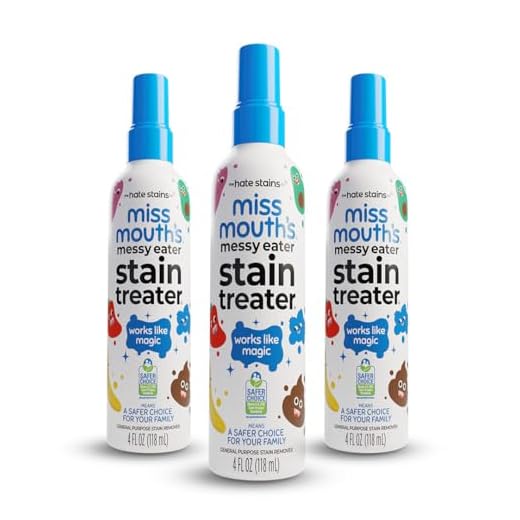

When you’ve spent time carefully washing and drying your clothes, it can be frustrating to see them get caught in a sudden rain shower. You might wonder if you should rewash them to get rid of any dirt or pollutants that may have been introduced by the rain. In this article, we will explore whether or not it is necessary to rewash clothes after they’ve been rained on.
One of the main concerns when clothes are exposed to rain is the potential for dirt and contaminants to adhere to the fabric. Rainwater can contain pollutants from the environment, such as air pollution or debris from nearby construction sites. Additionally, raindrops can splash up dirt from the ground and onto your clothes. These factors may leave your garments looking dirty or stained.
However, in most cases, it is not necessary to immediately rewash your clothes after they’ve been rained on. Modern detergents are designed to effectively remove dirt and pollutants, and a single rain shower is typically not enough to make your clothes significantly dirtier. Instead of rewashing, you can simply wait for the clothes to dry and then give them a thorough inspection to see if any stains or dirt are still present.
Are You Supposed to Rewash Clothes After They’ve Been Rained On?
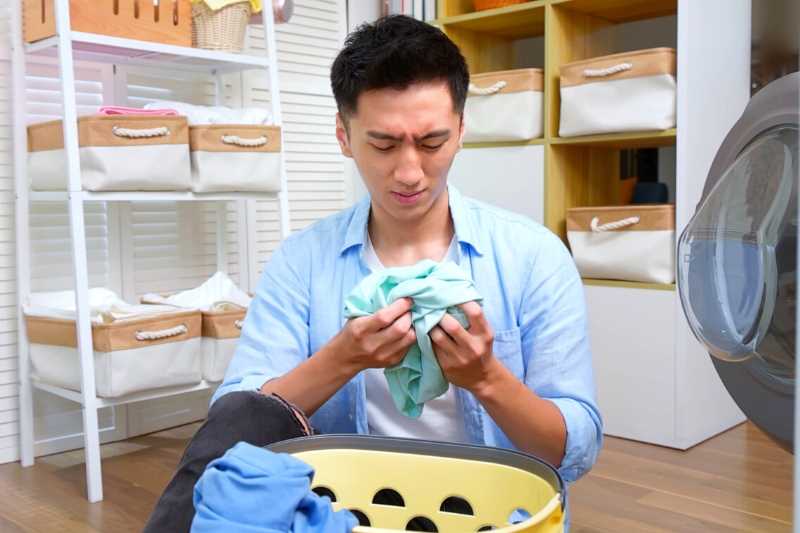
When unexpected rain showers catch you by surprise, it’s natural to worry about the condition of your clothes. You might be wondering if you should rewash them to ensure they’re clean and fresh. Let’s explore this question and find out the best course of action.
Rainwater itself is generally clean and does not contain harmful substances that would require immediate rewashing of your clothes. However, there are a few factors to consider:
1. Outdoor activities

If you were engaged in outdoor activities when it started raining, the chances are that your clothes got dirty or stained. Regardless of the rain, it’s advisable to wash clothes that are visibly soiled or stained.
2. Allergies or sensitivities
Some individuals may have allergies or sensitivities to certain types of pollen or other environmental allergens. If you notice any allergic reaction after coming into contact with rain-soaked clothes, it would be a good idea to rewash them using a hypoallergenic detergent.
3. Odor or mildew
In humid environments, rain-soaked clothes may develop a musty smell or even mildew if they are not dried properly. In such cases, rewashing the clothes with an appropriate detergent can help eliminate the odor and prevent further mold growth. Hanging the clothes to dry in a well-ventilated area is also recommended.
Generally, if your clothes only got wet in light rain and appear to be clean, there is no immediate need to rewash them. Hang the clothes to dry thoroughly before storing them to prevent any potential odors or mildew.
However, it’s always a good idea to trust your instincts. If you feel that your clothes need to be rewashed for any reason, it’s better to err on the side of caution and do so to ensure your peace of mind.
How Does Rain Affect Your Clothes?
When your clothes get caught in the rain, various factors come into play that can affect their condition and cleanliness. Here are some ways in which rain can impact your clothes:
- Water Stains: Raindrops can leave visible water stains on certain fabrics, especially if the water contains dirt, pollutants, or minerals. These stains can be challenging to remove and may require special treatment.
- Shrinkage: Some fabrics, such as cotton and wool, have a tendency to shrink when they get wet. If your clothes are not properly dried after being rained on, they may end up smaller or tighter than before.
- Color Fading: Continuous exposure to rainwater can cause colors to fade over time, especially in delicate fabrics or clothes that are not colorfast. This can result in a dull or washed-out appearance.
- Mildew and Odors: If your wet clothes are left in a damp environment for an extended period, they can develop mildew or musty odors. This is especially common in humid climates or if the clothes are not dried promptly.
- Stiffness: Rain-soaked clothes can become stiff and uncomfortable to wear. The water can create a temporary stiffening effect on some fabrics, making them less flexible and harder to move in.
- Mud and Dirt: In addition to water, rain can also carry mud, dirt, and other debris onto your clothes. This can leave visible stains or make the clothes appear dirty even after they dry.
Overall, while rain alone may not necessarily ruin your clothes, it can introduce various challenges and potential damage. Depending on the fabric and condition of the clothes, you may need to take proper care to ensure they remain clean, fresh, and undamaged after being rained on.
Potential Issues with Wet Clothes
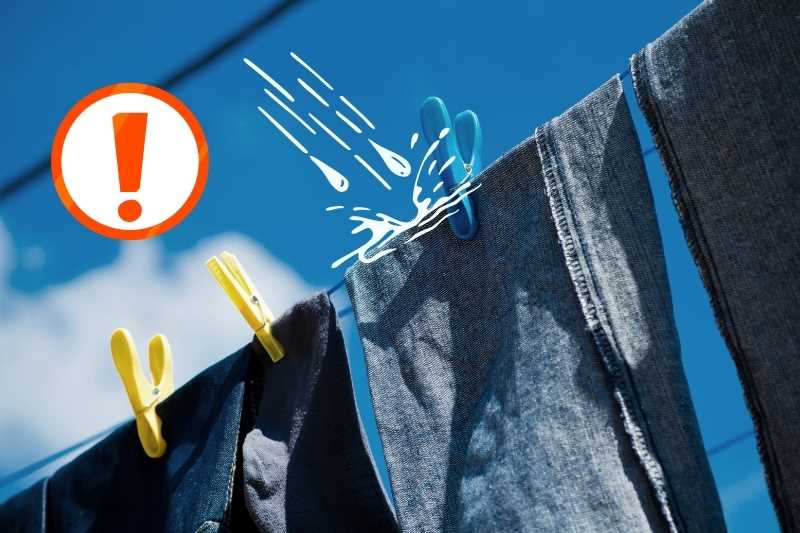
When clothes get caught in the rain, there are several potential issues that may arise:
- Mildew and Mold: Wet clothes left for too long can develop mildew and mold, especially in warm and humid conditions. These fungi can cause unpleasant odours and may even damage the fabric.
- Staining: Rainwater contains impurities and minerals that can potentially leave stains on clothes. These stains may be difficult to remove and can affect the appearance of the garment.
- Dye Bleeding: Some brightly colored or heavily dyed clothes may bleed when wet, which can result in color transfer onto other garments or surfaces.
- Loss of Shape and Stretch: Certain fabrics, such as wool or cashmere, can lose their shape and stretch when wet. These garments may require special care to regain their original shape.
- Prolonged Drying Time: Wet clothes can take longer to dry, especially if they are heavy or made of thick materials. This can be inconvenient and may increase the risk of developing odours or mildew.
While these issues can occur, they are not guaranteed to happen every time clothes get rained on. It depends on factors such as the fabric type, length of exposure to rain, and the specific conditions in which the clothes are stored while wet.
Factors to Consider Before Deciding Whether to Rewash
- Type of Fabric: Different fabrics may react differently to rain. Some fabrics, like wool or silk, may be more delicate and require special care. It’s important to check the care instructions on the clothing label before deciding to rewash.
- Cleanliness: Consider how dirty the clothes were before they were rained on. If the clothes were already clean and only lightly sprinkled with rainwater, it may not be necessary to rewash them.
- Odor: If the clothes have a strong, unpleasant odor after being rained on, it may be a sign that they need to be washed again. Rainwater can sometimes carry pollutants or contaminants that can cause odors.
- Stains: Check if the clothes have acquired any new stains or marks from the rain. If the stains are small and easily removable, spot cleaning may be sufficient. However, if the stains are stubborn or cover a large area, it may be necessary to rewash the clothes.
- Drying Time: Consider how long the clothes were exposed to rain. If the clothes were only briefly exposed and have had enough time to dry completely, rewashing may not be necessary. However, if the clothes were soaked for an extended period of time, rewashing may be the best option.
- Personal Preference: Ultimately, the decision to rewash clothes after they’ve been rained on may depend on personal preference. Some individuals may be more sensitive to odors or concerned about potential contaminants, while others may not mind as much.
Steps to Take if You Choose to Rewash
If you have decided to rewash your clothes after they have been rained on, follow these steps to ensure the best results:
1. Sort your clothes
Start by sorting your clothes into different piles according to their color and fabric type. This will help prevent color bleeding and damage to delicate fabrics during the rewashing process.
2. Check for any stains
Inspect your clothes for any visible stains that may have occurred during the rain. Treat these stains using an appropriate stain removal method before rewashing the garment.
3. Pre-treat the clothes
If you are concerned about the smell or any lingering dirt from the rain, you can pre-treat the clothes by soaking them in a mix of water and your choice of laundry detergent or vinegar. This will help remove any odour or dirt residue before rewashing.
4. Use a good detergent
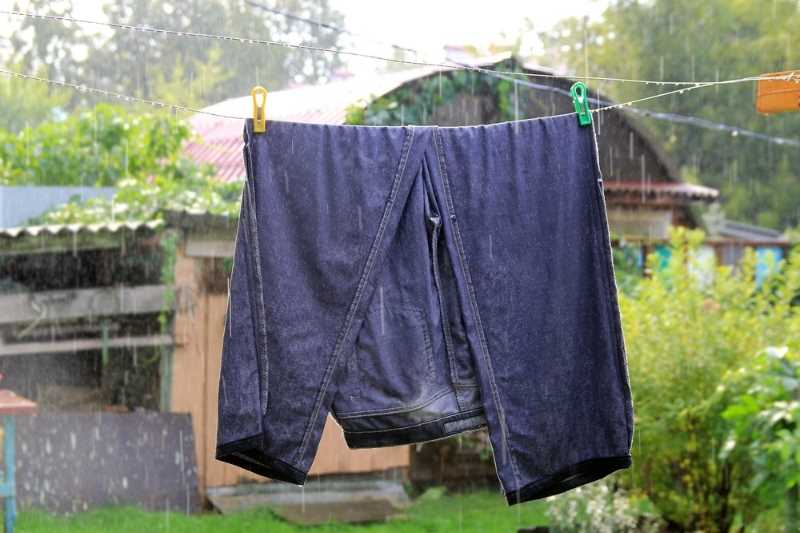
Choose a high-quality laundry detergent that is suitable for the specific fabric types of your clothes. This will ensure effective cleaning and remove any dirt or odour that may have accumulated during the rain.
5. Follow the care instructions

Refer to the care instructions on the clothing labels to determine the appropriate washing temperature and cycle for each garment. Following these instructions will help maintain the quality and longevity of your clothes.
6. Dry properly
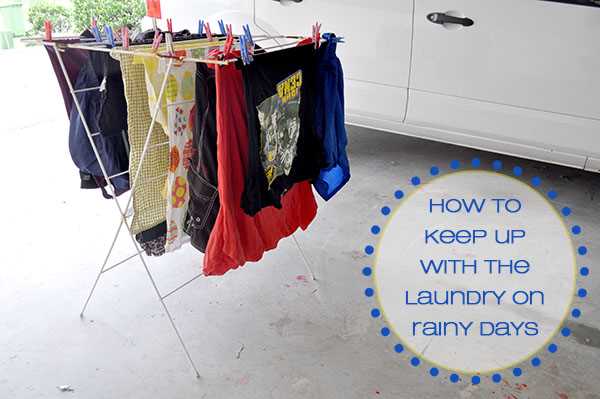
After rewashing, make sure to dry your clothes according to their specific care instructions. This may involve air-drying or using a dryer on a low heat setting. Avoid excessive heat, as it can cause shrinkage or damage to certain fabrics.
7. Iron or steam if needed
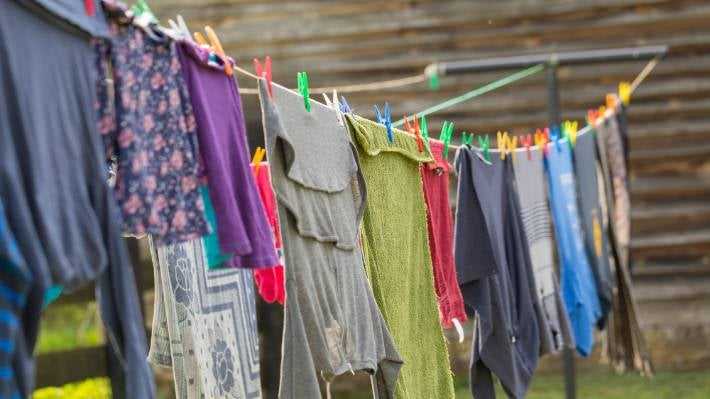
If your clothes require ironing or steaming after rewashing, ensure that they are completely dry before doing so. Iron or steam them at the appropriate temperature for the fabric to remove any wrinkles or creases.
By following these steps, you can rewash your clothes after they have been rained on and ensure they come out clean, fresh, and ready to wear again.
Tips to Prevent Clothes from Getting Wet in the Rain
Getting caught in the rain can be frustrating, especially when it comes to getting your clothes wet. To prevent your clothes from getting soaked in rainy weather, follow these tips:
- Wear a waterproof or water-resistant jacket: Investing in a good quality waterproof or water-resistant jacket is essential to keep your upper body dry. Look for jackets made from materials like GORE-TEX or nylon with a waterproof coating.
- Carry an umbrella: Carrying a sturdy umbrella can provide an extra layer of protection from the rain. Foldable and compact umbrellas are convenient to carry in your bag or backpack.
- Choose waterproof footwear: It’s important to wear footwear that can withstand rainy conditions. Opt for waterproof boots or shoes made of rubber or other waterproof materials to keep your feet dry.
- Wear a wide-brimmed hat: A hat with a wide brim can help keep your head and face dry during a downpour. Look for waterproof or water-resistant hats for better protection.
- Use a raincoat or poncho: In addition to a waterproof jacket, you can also wear a raincoat or poncho that covers your entire body to keep your clothes dry.
- Avoid clothing with excessive layers: Wearing too many layers of clothing can make it harder to stay dry in the rain. Opt for lightweight and moisture-wicking fabrics that dry quickly.
- Take cover: If you find yourself caught in heavy rain, look for shelter under buildings, awnings, or any other covered areas until the rain subsides.
- Plan your outfit: Check the weather forecast before heading out and dress accordingly. If rain is expected, choose clothes that dry easily and are less likely to get damaged by water.
By following these tips, you can help prevent your clothes from getting wet in the rain and protect them from potential damage.
FAQ
What happens if you don’t rewash clothes after they’ve been rained on?
If you don’t rewash clothes after they’ve been rained on, they may develop a musty or mildew smell. This is because rainwater can contain pollutants and bacteria that can get trapped in the fabric. Additionally, rainwater can also cause stains, especially if there are any dirt or mud particles in the rain. It is generally recommended to rewash clothes that have been rained on to ensure they are clean and fresh.
Can clothes get damaged if they are not rewashed after being rained on?
It is possible for clothes to get damaged if they are not rewashed after being rained on. Rainwater can contain acidic pollutants that may harm delicate fabrics and cause them to deteriorate over time. In addition, if there are any dirt or mud particles in the rain, they can leave stains on the clothes if not properly washed. Rewashing clothes helps to remove any potential damage-causing substances and ensures the longevity of the garments.
Is it necessary to rewash clothes that have only been lightly rained on?
Whether it is necessary to rewash clothes that have been lightly rained on depends on personal preference and the specific circumstances. If the rainwater was clean and there are no visible stains or odors on the clothes, it may be sufficient to simply hang them to air dry. However, if there are any doubts about the cleanliness or if the clothes have been exposed to dirty rainwater, it is advisable to rewash them to ensure they are thoroughly cleaned and fresh.
How should clothes be washed after being rained on?
When washing clothes that have been rained on, it is recommended to follow the care instructions on the garment label. Use a suitable detergent and wash the clothes according to the recommended water temperature and cycle. If there are any visible stains, pretreat them with a stain remover before washing. After the wash cycle, air dry the clothes or use a dryer if the fabric allows. It is important to ensure the clothes are completely dry before storing them to prevent mold or mildew growth.
Can rewashing clothes after they’ve been rained on help remove odors?
Yes, rewashing clothes after they’ve been rained on can help remove odors. Rainwater can sometimes leave a musty or mildew smell on clothes, especially if they were not dried properly after getting wet. Rewashing the clothes with a detergent that is suitable for the fabric can help eliminate these odors and leave the garments smelling fresh.
Can I wear clothes that have been rained on without washing them?
Yes, you can wear clothes that have been rained on without washing them, as long as they are not visibly dirty or stained.
What should I do if my clothes get wet in the rain?
If your clothes get wet in the rain but are not visibly dirty or stained, you can simply hang them up to dry and wear them again when they are dry. However, if your clothes are visibly dirty or stained, it is best to wash them before wearing them again.














